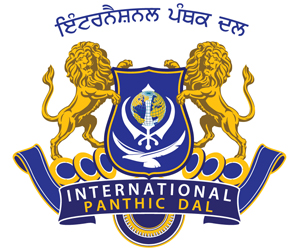Sikh groups have called for a government inquiry into alleged British collusion in the bloody 1984 Indian military attack on the Golden Temple in Amritsar, the faith’s holiest shrine, after newly released documents appeared to show the SAS was involved in planning the attack.
The head of the Sikh Council UK, Gurmel Singh said he was “shocked and disappointed” at the idea the government of Margaret Thatcher may have been involved. The Labour MP Tom Watson, whose West Bromwich constituency, contains many Sikhs, has demanded the Foreign Office release further papers about any British role.
Details come in two letters reportedly among a large cache of government documents released in the new year under the 30-year rule and published on the blog Stop Deportations.
One, dated 23 February 1984, is from Brian Fall, private secretary to the then-foreign secretary, Geoffrey Howe, to Hugh Taylor, his counterpart under the home secretary of the time, Leon Brittan. It warns about “the possibility of repercussions among the Sikh community in this country” over a possible military operation to remove from the Golden Temple Sikh militants, who had seized it several years earlier.
India had sought British advice over a plan to remove the militants from the temple complex, Fall writes, adding: “The foreign secretary decided to respond favourably to the Indian request and, with the prime minister’s agreement, an SAD officer has visited India and drawn up a plan which has been approved by Mrs Gandhi. The foreign secretary believes that the Indian government may put the plan into operation shortly.”
The reference to SAD is understood to be a typographical error for SAS. The elite unit is referred to later in the letter, where Fall writes that the military raid could increase tensions among Britain’s Indian community, “particularly if the knowledge of the SAS involvement were to become public”.
He adds: “We have impressed upon the Indians the need for security; and knowledge of the SAS officer’s visit and of his plan has been tightly held both in India and in London. The foreign secretary would be grateful if the contents of this letter could be strictly limited to those who need to consider the possible domestic implications.”
The issue is an explosive one for Sikhs worldwide. In June 1984, the military operation took place over six days, with India’s government saying around 400 people had been killed. However, Sikh groups put the death toll in the thousands, including many Sikh pilgrims. In October that year, two Sikh bodyguards to Indira Gandhi, the Indian prime minister, assassinated her, sparking anti-Sikh riots that killed more than 3,000 people.
In a statement released by the Sikh Council UK, Singh said: “Thousands of innocent men, women and children were killed in the attack, which took place on one of the holiest days in the Sikh calendar. As well as loss of life, buildings and property was destroyed and the historical Sikh reference library was ransacked. This is and remains one of the darkest episodes in Sikh history.
“I am calling for an urgent inquiry into UK government involvement in the events of 1984 including a full disclosure of all documentation. The letters date from February 1984 yet the attack took place in June 1984 and then there was the subsequent genocide of Sikhs following Indira Gandhi['s] assassination in October 1984. I want to know, what else were the UK government saying and doing over all that time?”
The other letter released is from Robin Butler, Thatcher’s private secretary. On 6 February 1984 he wrote to Fall saying Thatcher was “content” for Howe to allow India to receive help, and that Brittan expected to be warned if India looked likely to go ahead with a raid.
According to the Stop Deportations blog, three other letters in the sequence between Butler and Fall were not released; nor was any other file from after March that year.
Watson told the BBC Asian Network the letters raised “huge questions about the role of the British government at the time”. He said: “On behalf of my constituents I was also deeply upset and offended that we were involved in what turned out to be a raid that caused huge loss of life and political tensions ever since.”
He said the other letters should be released: “I think British Sikhs and all people concerned about human rights will want to know exactly the extent of Britain’s collusion with this period and this episode, and will expect some answers from the foreign secretary.”
A foreign office spokesman said officials were still verifying the authenticity of the letters and would respond once this had been done.
News Source: Guardian








